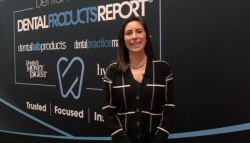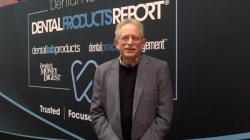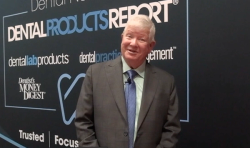- About Us
- Advertise
- Editorial
- Contact Us
- Terms and Conditions
- Privacy Policy
- Do Not Sell My Personal Information
© 2025 MJH Life Sciences™ and Dental Products Report. All rights reserved.
GNYDM24 Product Focus: Debra Engelhardt-Nash talks about how Weave's systems can help with increasing patient acceptance and with practices getting paid
At the Greater New York Dental Meeting in early Decemebr, Debra Engelhardt-Nash discusses how Weave's software and patient engagement systems can help with increasing patient acceptance and with practices getting paid. [4.5 minutes]
Video Transcription:
Hi. My name is Deborah-Engelhardt Nash. I'm here at the Greater New York Dental Meeting. I just had the opportunity to present in the Dental Products Report lecture area—a phenomenal facility and space, by the way. My presentation was getting patients to say yes to treatment and how to get paid for it. And one of the things that I really highlighted, and I think it's really important, it's sort of my mantra, if you will, is that patients do not choose dentistry based on the clinical abilities of the provider, of the doctor. They don't know the difference between great dentistry, subpar dentistry, and average dentistry. They don't judge the dental office based on the tertiary anatomy of the dentist’s crown.
What they do judge their dentistry by is the way they are treated while they are in the patient's care. And actually, statistics will reveal, that 75% of brand loyalty is created because the patient feels strongly about the relationship they've developed with the doctor and the team. So, it's really a critical piece about patient attraction and retention, actually even about marketing and Google reviews, growing the practice is all based on this.
We are now currently living in what we call an experienced economy, which means that transactions are more relational, and people are inclined to buy based on the emotional appeal, as opposed to the goods and services that they're providing. So, we talked, I talked, about that in my presentation. I also talked about, what are some of the critical questions to ask a patient and some of the words to avoid, you know, avoiding the word like policy, or it's just a cleaning, or I'm just calling to check up. Or when we hand the patient a policy statement letter that says here's how you have to abide by our rules and protocols in the office. That's not what people want anymore. I want an experience. I want to feel like I'm special, that my relationship matters.
I also make sure that—I really don't have time to talk about body language—But how do we present the treatment and the importance of the team endorsing the doctor. Most dentists do not walk into an operatory and say, ‘I'm a really good dentist, and you're so lucky that you're in my care.’ But that would almost be ridiculous. And how would a patient feel if someone, if a doctor's ego, walked in before they did, but a dental team can do that endorsement. A dental team can walk in and say, Can I tell you about the doctor for who I work and why I'm here and why I believe in what they have to offer, and I think that's important. I also really want to talk about the utilization of technology in today's world. One of the customer service trends for 2024 is the expectation of technology. People expect to be able to pay online. They expect to be able to contact their dental office through texting, through other avenues. We're expecting to be able to gather data through technology, and gone are the days of the laborious process of one person on the team being responsible, for example, of insurance verification. Once again, you can actually take care of that technologically through systems like Weave where that will actually be populated for you.
So, consumers today are expecting the utilization of technology. Consumers today are expecting an exceptional customer service experience, and dentists will increase and improve their treatment acceptance rate by thinking about, ‘how do I bring that into their experience? The new patient experience. I have the treatment presentation skills that I utilize with my patients, and I think they'll be far more successful if they think about that. So, think about the experience economy, which is what we really focused on, and how you involve your team, and some of the things. In fact, one of the key notes that I brought up is, and I asked the question today, what is the most expensive piece of equipment in your in your office? And no one in the audience got the question right; got the answer right. The answer is this, the most expensive piece of equipment in your office is an empty chair. Systems such as Weave’s, technologically can help you, fill chair time without having to take laborious, uneventful or…in the past, in the old days, we would call a patient, we'd get an answering machine, we try and get the patient in. Now, it's all done technologically. It's so advanced, this makes it so much easier. I can populate a call out to patients to get my chair time filled. It's a critical piece in business success.



